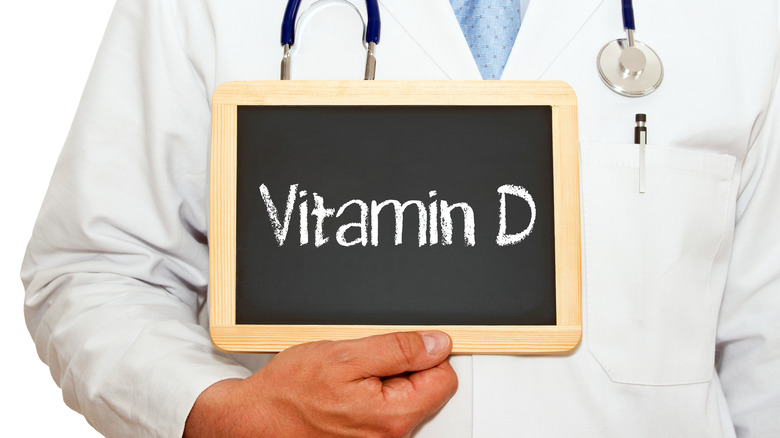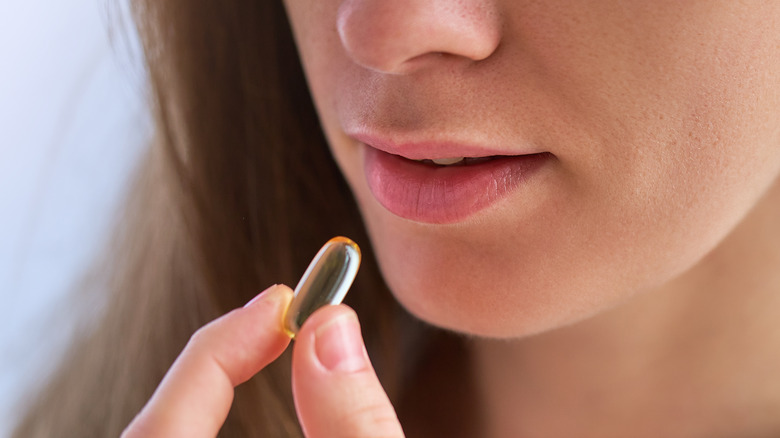What It Really Means When Your Body Can't Absorb Vitamin D
It is vital that you maintain proper levels of vitamin D in your system. This is because vitamin D promotes immunity, healthy bones, as well as heart and lung function. Vitamin D also regulates insulin levels and reduces the risk of certain serious diseases, among other benefits. You typically produce vitamin D naturally whenever you expose yourself to the sun. Otherwise, you can get your daily dose from certain foods or give yourself a vitamin D boost through a supplement (via Medical News Today).
But what does it mean when your body can't absorb vitamin D and, as a result, you are vitamin D deficient?
Symptoms of a vitamin D deficiency can be subtle for some people, but some signs include bone pain and muscle weakness. The risks of vitamin D deficiency can lead to significant health issues, such as cancer and cognitive challenges in older adults (via WebMD).
As far as why you are unable to absorb vitamin D, this could be due to a number of possible medical conditions.
Possible reasons why you can't absorb vitamin D
If your body can't absorb vitamin D, it could be a sign of various health conditions such as Crohn's disease, cystic fibrosis, or celiac disease. These diseases will hinder your intestines from absorbing the necessary amounts of vitamin D your body needs (via Cleveland Clinic).
Kidney and liver disease can also negatively influence how your body absorbs vitamin D. If you are going through radiation treatment, this will also make it difficult for your intestines to absorb vitamin D. Weight loss surgery can also have an impact on vitamin D absorption (via Insider).
If you are not diagnosed with any serious health conditions, but exposure to sunlight and vitamin D enriched foods or supplements are not raising your vitamin D levels high enough to be within a healthy range, it may be time to talk to your doctor about the best next steps to remedy the issue.


